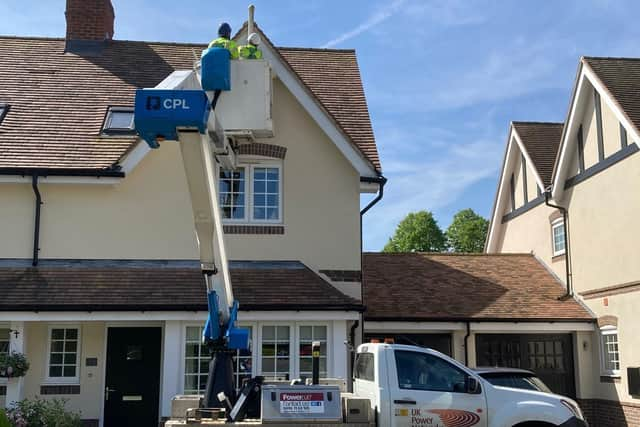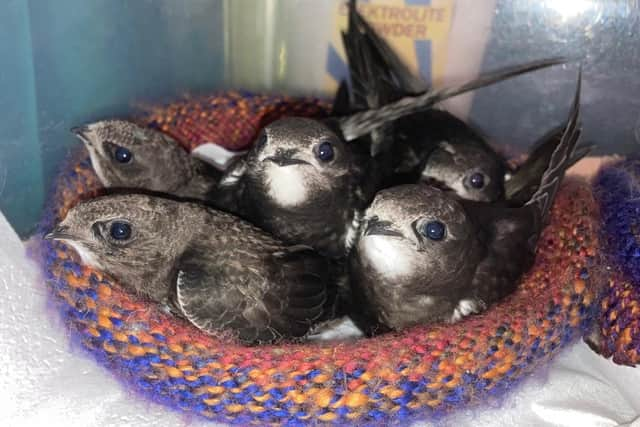Electricity line workers teamed up with residents in Warnham to help create new nest sites for endangered swifts and kestrels.
Overhead line experts from UK Power Networks helped to install specialist nest boxes in the eaves of homes across the village ahead of World Swift Day on June 7. They were joined by members of the environmental group Wild About Warnham.
Linesperson Paul Maynard supported the project with colleagues Ben Parkes and Ritchie Mulhall through UK Power Networks’ Donate a Day scheme which gives staff two paid days each year to volunteer in their local communities.
Paul, a wildlife enthusiast, said: “Working at height is part of my job as a linesperson so I wanted to help. I’m passionate about wildlife and enjoy helping my local community. We’ve got the equipment and skills they needed to complete this project.


“Swifts and kestrels are struggling due to climate change, pesticides and a decline in insects as more of us keep our gardens tidy and loss of wild fields and hedgerows. Everything is against them, so we are just trying to do our bit for nature conservation.”
Wild About Warnham member Alison Ingram welcomed the project which received funding from Wilder Horsham District to purchase swift nest boxes through a Nature Recovery Award grant. Last year she successfully rehabilitated and released 16 swifts, witnessing the threats they face first-hand.
Alison said: “The swift boxes were difficult to install in the apex of the buildings and we needed someone with a cherry-picker. They were brilliant chaps and it was a fun two days.


“We have a small population of swifts in Warnham and they prefer to nest in small gaps in roof soffits. As people carry out home renovations, swifts lose their natural nesting sites.
“Often people aren’t aware they’ve got swifts nesting in their eaves as they are only here for about three months of the year and nests can be inadvertently destroyed.
“Swifts are long-living birds and completely loyal to their nest sites so once they lose their nest they often won’t breed again. Their numbers are in steep decline due to a lack of nest sites and loss of insects. It is a worry, but it is positive there are so many people interested in helping them and we hope the decline can be stopped.”

